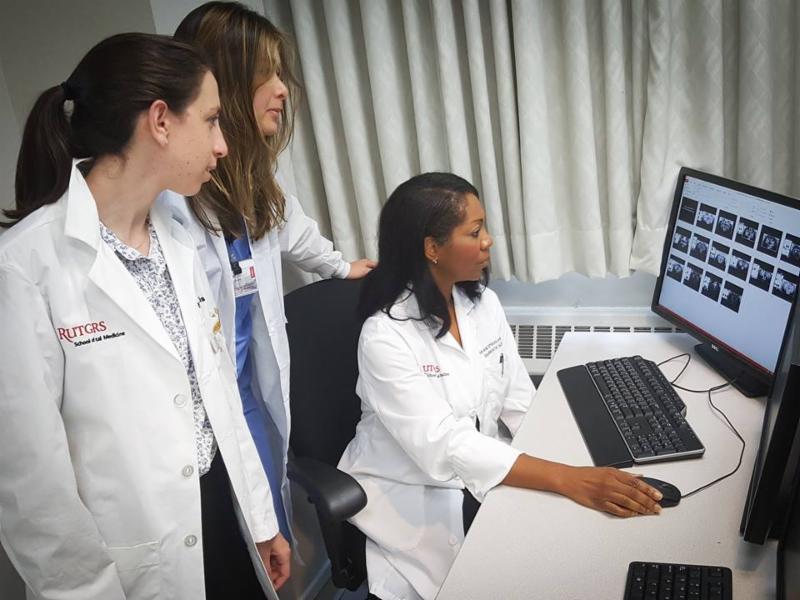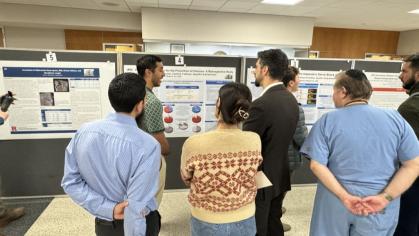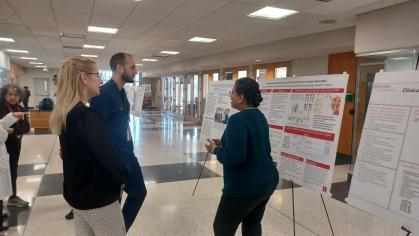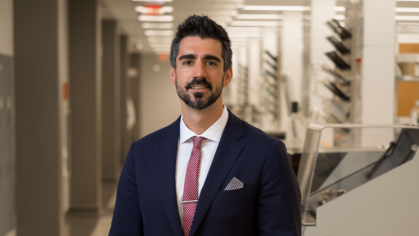RSDM Research Shows Tooth Anomalies Often Hereditary
 Dr. Maxine Strickland, seated, and students examine radiographs. (PHOTO CREDIT: Thomas Viccaro).
Dr. Maxine Strickland, seated, and students examine radiographs. (PHOTO CREDIT: Thomas Viccaro).
When a child has a tooth anomaly, such as delayed eruption of adult teeth or other abnormalities, parents often worry it’s a sign of deeper or more serious health issues.
Dr. Maxine Strickland, an associate professor, can help reassure them that, most of the time, it’s not. For the past few years over summer breaks, Dr. Strickland has worked with Rutgers students to review over 2,000 panoramic radiographs, looking for cases of dental anomalies.
Their ultimate goal was to to explore genetic causes of tooth anomalies, including delayed erupting teeth, missing teeth, or additional teeth, known as “supernumerary.'' They also examined teeth that simply fail to erupt or would only partially erupt into the occlusion.
According to Strickland's research, in most cases, tooth anomalies are hereditary and not problematic, which often comes as a relief to families. “These things can be very traumatic for patients, especially if the tooth is in the front of the arch,’’ says Strickland. “When they find out that it’s something that can be traced back through their family pedigree tree, they were able to understand that it’s just a part of their child’s development and that’s normal for them, which takes some of the fear out of it.”
She added, “One mom, thought that it was a really amazing service we performed. Just knowing that someone would go to what seemed to her all this trouble. That they cared enough to sit down and explain to her and her child meant a lot.’’
As the basis of the work, which began with a $6,000 grant from the Rutgers Health Foundation, Dr. Strickland and her students worked with 25 patients to create an inheritance family tree to see if similar anomalies had turned up in previous generation.
Strickland found a correlation between the dominant inheritance patterns and teeth that failed to erupt. “The pattern was that if one parent had it, at least one child could have it also,’’ said Strickland, adding that parents were encouraged that they were then able to plan for more a more expensive treatment determination.
Strickland's study team consists of Dr. Scott Diehl, Dr. Padma Mukhergee, Dr. Steve Singer and Dr. Maxine Strickland. Summer research students included Rebecca Eis, Nicole Viola, Jenna Earnhardt, Patricia Larosiliere and Joseph Zano, and Nicole Rocha.



